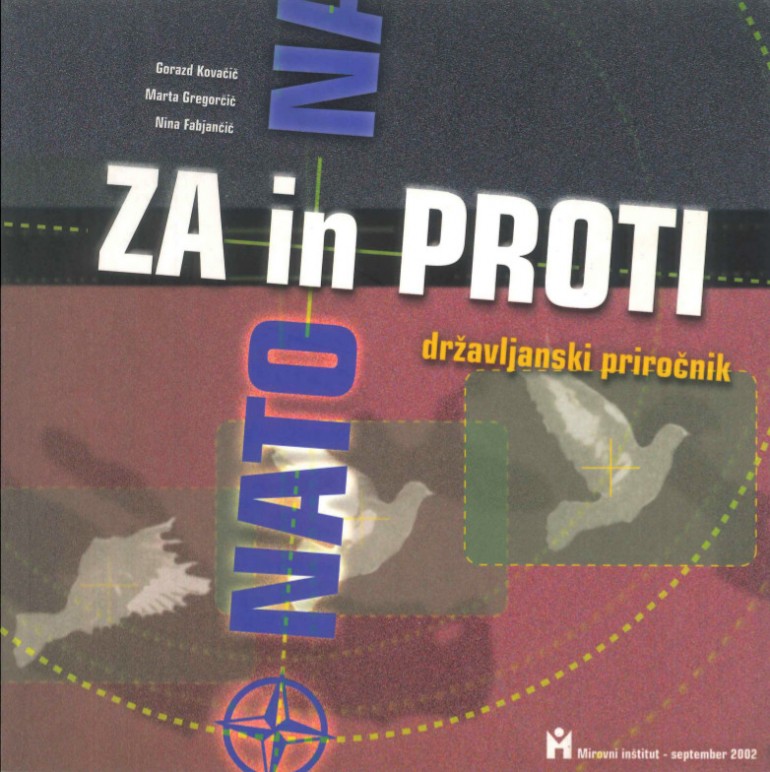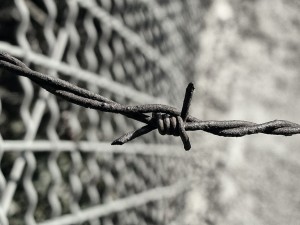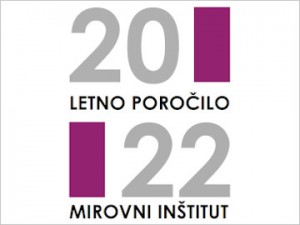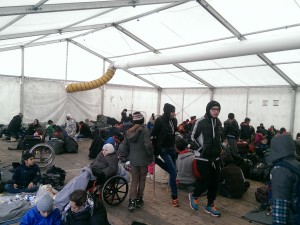Kratko poročilo o pritiskih na medije in novinarje
8. 4. 2003 | Politika

Re: Brief report on the pressures exerted upon the media and journalists in Slovenia during the government’s pro-NATO campaign prior to the referendum
To: International Federation of Journalists
Reporters Sans Frontières (Reporters Without Borders)
Committee to Protect Journalists
Article 19
International Press Institute
World Press Freedom Committee
IFEX
Council of Europe – Media Division
OSCE – Media Freedom Representative
As an organisation running the Media Watch project to regularly monitor and reflect on media practices and media policy in Slovenia, the Peace Institute would like to call the attention of the international media freedom organisations to the pressures exerted upon journalists and media, and consequent self-censorship in the media in Slovenia during the government’s pro-NATO campaign, prior to the March 23 referendum on Slovenia’s accession to NATO and the EU. The media situation we are describing is one among various indicators that there are complex but obvious problems with media freedom and autonomy in Slovenia.
During the pro-NATO campaign of the Slovene government, the government’s Public Relations and Media Office distributed, without transparent mechanisms, money to several local television stations for special programs on Slovenia’s accession to NATO. The Public Relations and Media Office declared the arrangement a “co-production”. One private local television station was paid by the government to produce and broadcast a series of broadcasts promoting Slovenia’s accession to NATO; the broadcasts have been used further in the government’s pro-NATO campaign – they were posted on the govrenment’s web site and were distributed to all other local television stations on behalf of the government free of charge.
Having in mind that local television stations in Slovenia face economic problems and fight for survival, the “co-production” arrangement during the government’s pro-NATO campaign can be understood as a form of pressure. The problematic financial side of the government’s pro-NATO campaign becomes even more apparent, when we take into account that the government spent the same amount of tax-payers’ money in the few weeks of the March pro-NATO campaign as it will spend subsidizing print and broadcasting media in Slovenia in the entire year 2003.
Another method of pressure exerted on journalists and the media in Slovenia by the state officials and politicians (who have been almost without exception supporters of Slovenian inclusion in NATO) were accusations of disregard for national interest – made against journalists whenever they failed to tow the party line. Rok Praprotnik, a journalist writing for Delo, had this to say: “Politicians ask us journalists, whether or not we are aware of the dangers if Slovenia stays out of NATO; whether or not, when we are critical of Slovenia’s accession to NATO, we are ready to accept the responsibility for this country’s freedom and security. It bothers me when officials and other representatives of the political elite blame me (and other journalists) for the possible failure of Slovenia to join NATO. It burdens me and makes my daily reporting difficult.”
Another journalist of Delo complained that, in the week before the referendum concerning NATO, editors refused to publish two of his articles criticizing the government’s pro-NATO campaign. He (Branko Soban, former Middle East and Moscow correspondent for Delo) said: “The main intent behind such a violent step was to silence voices of criticism and not to allow them to influence public opinion.”
Also, the events following the interview, which Ana Jud, a journalist for Ona, the women’s supplement of Delo and Slovenske novice, conducted 11 days prior to the referendum with Joschka Fischer, the German Minister of Foreign Affairs, serve as another example of the manipulation and censorship foisted on the journalists in Slovenia during the govenmental pro-NATO campaign prior to the referendum.
The interview was coordinated by the government’s Public Relations and Media Office, specifically its director Gregor Krajc. Jud’s questions touched on Iraq, the hypocrisy of the Slovene Minister of Foreign Affairs Dr. Dimitrij Rupel and Fischer’s past as a radical dissident. When Jud asked »Minister, would you say that you were a potential terrorist in your youth?« Fischer answered »Definitely not!« and ended the interview.
The day after the interview, on March 13, 2003, Jud was informed that both the German Embassy and the Slovene Ministry of Foreign Affairs were demanding the interview be sent to them for authorization. Krajc told Jud that, if Ona printed the interview without authorization, »shit would hit the fan«. Although the editor initially decided to run the interview, it has not been published.
It is obvious that the interview had been offered by the government’s PR exlusively to Ona – the women’s supplement of the two highest selling Slovene dailies – to serve the government’s pro-NATO campaign and raise support for Slovenia’s accession to NATO among women, since opinion polls prior to the referendum indicated women mostly did not support NATO membership.
In its Media Watch journal, the Peace Institute has been regularly analysing media coverage and public debate on Slovenia’s accession to NATO for more than a year, but the level and forms of pressures on media and journalists and consequent self-censorship dramatically escalated in weeks prior to the referendum. We will produce a comprehensive study on public debate on NATO prior to the referendum in Slovenia and the role the media and journalists played in it. But, according to various indicators, the situation has been a symptom of the complex but obvious problems with media freedom and autonomy in Slovenia.
For further information: Brankica Petkovic, brankica.petkovic@mirovni-institut.si




